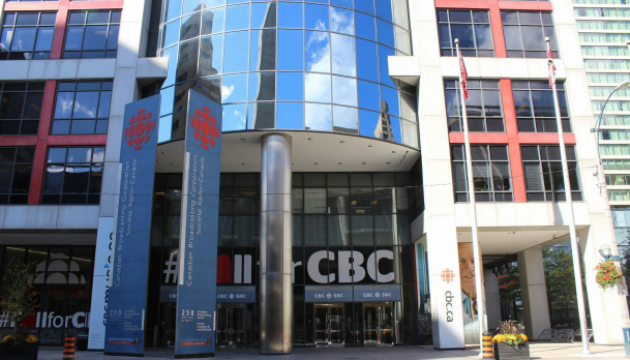CBC Ombudsman: Commentary in News
The complainant thought an interview segment with a CBC reporter was “pseudo-commentary” passing as news.
By Esther Enkin, CBC Ombudsman
The complainant, Tom Korski, thought an interview segment with a CBC reporter was “pseudo-commentary” passing as news. It was a legitimate analysis based on Paul Hunter’s experience in the field. Explaining what conclusions are based on helps make that clearer.
COMPLAINT
You complained that an exchange between acting National host and reporter Paul Hunter concerning the Democratic Party Convention was inaccurate and biased in favor of the Democrats. The Convention was to begin Monday, but all day Sunday there had been protests by Bernie Sanders supporters. You thought Mr. Hunter downplayed the size and angry tone of these demonstrations. You cited coverage from the New York Times and the Philadelphia Inquirer that mentioned thousands were in the street and that these demonstrations were larger than anything at the Republican Convention in Cleveland. You said he also failed to mention chanting against Hillary Clinton. You also pointed out that Mr. Hunter characterized each Convention in very opinionated and loaded language.
View[er]s of the July 24 broadcast of The National could only conclude that demonstrations in Philadelphia were minor and supportive of the DNC; that Republicans are “hard”, “angry”, “enraging”, “ugly”, “hurtful”, “low” and hateful; and Democrats are positive and inspirational.
This broadcast was as maddening a pseudo-commentary in the guise of reportage as I’ve ever seen on television. Relevant facts were omitted, and undocumented opinion was substituted for fact.
MANAGEMENT RESPONSE
The Executive Producer of The National, Don Spandier, replied to your complaint. He explained that The National provided extensive coverage of the Democratic Party Convention on July 24th. He pointed out that the opening item was the question-and-answer segment with Mr. Hunter and it began by pointing out that things were not going well. He added that in the first part of the segment, they discussed the issues arising out of the news of the day: the impact of the leaked memos indicating party officials had attempted to sabotage Bernie Sander’s campaign would have on the Convention. His response indicated this was having a negative effect:
Having reported the previous week from the Republican Convention in Cleveland, Mr. Hunter was in Philadelphia’s Wells Fargo Center that Sunday on the eve of the opening of the Democratic Convention. He told Ms. Arsenault that it was “absolutely not” what the Democrats wanted. He said that the leak “underlines pretty much everything that Bernie Sanders has been saying from the get go, that the system is rigged against him”. Ms. Clinton was expecting the Convention to be pretty smooth sailing, he said. “Now, she’s got more work to do. She’s got to work extra hard to unite the party.” He went on to say that he had spoken with a Bernie Sanders delegate earlier who said that at this point he wasn’t sure he could vote for Ms. Clinton.
He explained that it was in the second part of the interview that Mr. Hunter and Ms. Arsenault “shifted the focus from the news of the day to the character of convention.” It was in this answer that Mr. Hunter characterized the Republican Convention, based on his observations there, and contrasted that with what he anticipated to be the tone and tenor of the Democratic Convention set to officially begin the next day. He told you he thought it was a legitimate scene-setter and that “based on his knowledge and understanding” he was explaining what he expected to happen. He quoted Mr. Hunter saying the “vibe” in Philadelphia was different from the one he had experienced the week before at the Republican Convention, and that while there were demonstrators in Philadelphia, it was unlike the “ugly and hurtful” things he had seen in Cleveland. Mr. Spandier told you it was acceptable for a senior journalist to make a judgment call based on their reporting:
…we expect them to reach conclusions, to develop a point of view, if you will, based on facts, on the evidence they collect. That was what Mr. Hunter did here. While we expect our journalists to refrain from expressing their own personal views or advocating a particular point of view, that does not preclude experienced journalists – Mr. Hunter, among them – from bringing their knowledge and background to bear on a controversial issue and drawing conclusions based on that evidence.
He added that The National did not provide the same detail about the demonstrations as some of the other news sources you cited. He said the resources were not available, nor the time on the broadcast to do it all, and choices were made based on those available resources and what editors thought would be “the most interesting and significant stories to Canadians”.
Continue reading this story on the CBC website, where it was first published.

